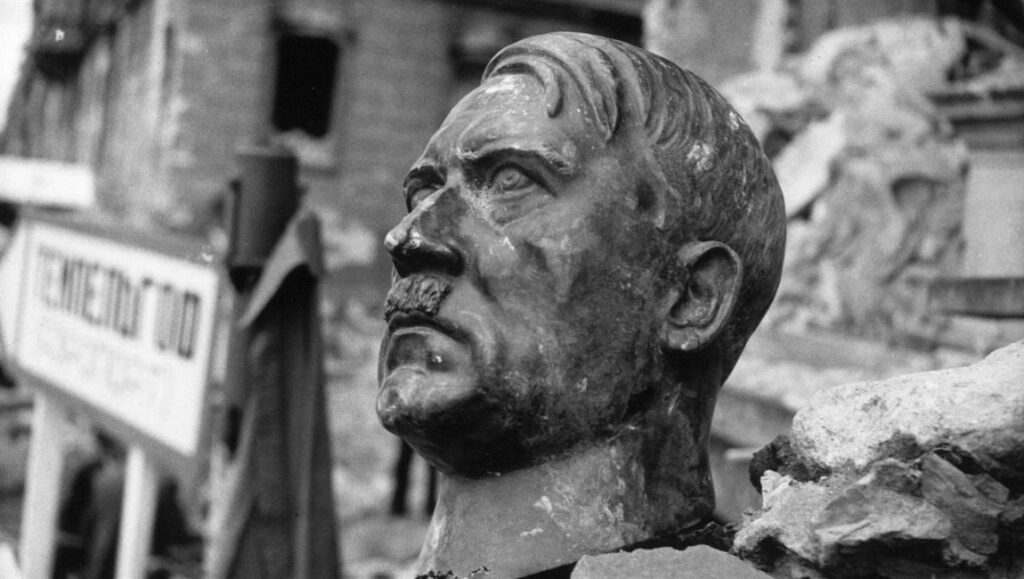The Meaning of Hitler is a bold, risk-taking work from a confident directorial duo.
Adapted from Sebastian Haffner’s The Meaning of Hitler, a book that the film admits is mostly sold at bookshop cash registers to appease anxious white liberals, this stylish documentary from Petra Epperlein and Michael Tucker examines the cultural obsession with Hitler. Before you tune out, thinking that the film is destined to be little more than some History Channel schlock, this isn’t one of countless Hitler documentaries that your father falls asleep to on a Sunday afternoon. From the film’s first moment, Epperlein and Tucker make their agenda clear, and pull no punches when doing so — they aren’t interested in dissecting the man himself, or looking for any biographical breadcrumb trail that might explain Hitler. When asked about this tendency, historian Deborah Lipstadt responds “So what? The minute you’re trying to give a rational explanation for an irrational sentiment, you’re going to be lost,” and it’s an understanding that Epperlein and Tucker wisely adopt. Instead of trying to rationalize, the pair stick to the facts, cutting through niceties with a refreshing zeal, and proving themselves more than happy to call a spade a spade, and a Holocaust denier a Holocaust denier.
But there’s still the conceptual problem: depicting Nazism accurately is almost an impossible task: no matter how didactic a filmmaker skews, there is always significant risk of their work and its imagery being reappropriated by the very people it seeks to condemn. The tragic machismo and bold filmmaking present in films like American History X can serve the same function as Triumph of the Will in the wrong hands, providing imagery for neo-Nazis to project their delusions of grandeur onto. The ethical and logistical complications begin to pile up, and so creators may be inclined to take the cop-out route of just simply depicting Hitler instead. Here, fortunately, the filmmakers rather embrace the indefinability and irrationality of their subject matter. Zooming between film, culture, tourism, historical preservation, and back again, the film’s non-linear, ordered-chaos approach to the Hitler industrial complex is perhaps the only way Epperlein and Tucker could have pulled it off, and pull it off they do. Their approach not only does justice to Haffner’s book, but transcends it, at once laying out the author’s hypothesis and also updating it for our present age, one whose interaction with history is worlds away from Haffner’s own comprehension of this relationship in 1978. The combination of its structural looseness, creative narrative approach that refuses to patronize its audience, and a well thought-out ethical foundation allows The Meaning of Hitler to take necessary risks. For example, interviewing the controversial historian and Holocaust denier David Irving is a decision that other filmmakers may not have made for fear of providing a platform to an anti-Semite — certainly a moral consideration to be undertaken — and in the hands of lesser documentarians, this might have happened, but Epperlein and Tucker are instead able to use the man’s brief appearance to elucidate the abject intellectual and logical failures of such a position, his inclusion reflective of the filmmakers’ fearlessness. It’s indicative of a comprehensive boldness, and The Meaning of Hitler indeed offers an alternative to pro-forma Hitler portraiture, at once refreshing and chilling, leaning into its own messy subject matter. Viewers can hope that this marks the last word on the man himself, but we’re left with the horror that there are likely many more to come about the movements he still inspires.


Comments are closed.